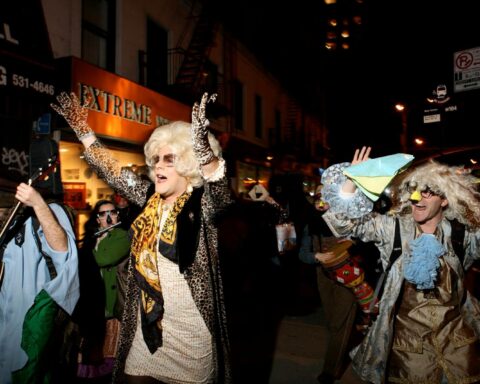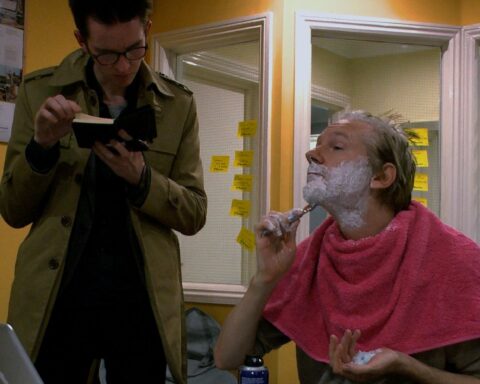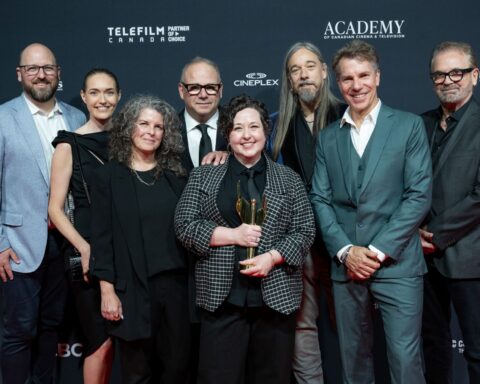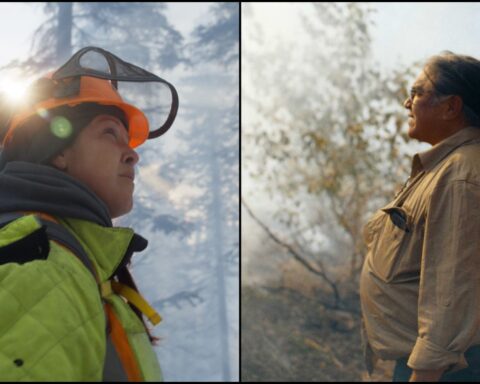Meeting Gorbachev
(UK/USA/Germany, 90 min.)
Dir. Werner Herzog, André Singer
Programme: TIFF Docs (Canadian Premiere)
Werner Herzog plays softball with world leaders in Meeting Gorbachev. This utterly toothless documentary sits down with the former leader of the Soviet Union for a greatest hits account of his time in office. Sure, Mikhail Gorbachev seems like a really nice guy based on the affable interviews he enjoys with Herzog, and the director’s admiration for the subject is evident in the great rapport that develops between them. With such great access comes great responsibility though, and Herzog doesn’t do the world justice by moderating Gorbachev’s trip down memory lane. Herzog and co-director André Singer don’t even indulge Gorbachev in the sugar-free chocolate they bring him for his birthday. That’s how safe the film is.
Gorbachev is a warm subject, far more likable than the current Russian head cheese and American President by-proxy, Vladimir Putin, so it’s easy to see how Herzog and Singer fell into an easy relationship with him. Herzog also begins the film by saying in his signature ruminative voiceover that he feels a great weight to the encounter as a German, since his people decimated Gorbachev’s own decades before. Gorbachev dismisses his distrust of Germans from the outset and his easygoing response to Herzog’s concerns sets the tone for the three interviews in which they discuss his career. It’s not all rose coloured glasses, but Gorbachev is a professional politician, after all, and his answers are well-versed in the art of diplomacy.
The doc guides viewers through the crumbling of the old guard that enabled Gorbachev’s ascent to power. The former leader explains his vision for establishing a new order in the former Soviet Union, and of looking beyond the crotchety ways of his predecessors to understand why some nations prospered when his did not. The doc highlights Gorbachev’s effort to improve diplomatic relations with the USA and put aside Cold War tensions, and one worthy keystone of his legacy is his effort to dismantle nuclear arms after seeing firsthand the devastation caused by the 1986 disaster in Chernobyl, a turning point in his career.
The implication of these jovial chats is that times have changed and Herzog appreciates that Gorbachev deserves his chance to go on the record before his time on this Earth is over. However, Meeting Gorbachev feels entirely divorced from the political tensions of today. Gorbachev acknowledges that his legacy is being revisited, and that many of the advances he made are being undone, but the doc’s only reference to Putin arises in a deeply personal sequence about Gorbachev’s late wife, Raisa, when Putin solemnly leads the mourning queue and Herzog implies his succession. It’s a film made in a bubble.
One can appreciate that a former leader might be uncomfortable commenting on the controversies of the sitting president of his nation, but Herzog doesn’t even ask Gorbachev about Russia’s current commander in chief. He doesn’t ask him about Trump. He doesn’t ask him about the perceived unholy marriage between the White House and the Kremlin. The omission of such topical questions is too significant to overlook, especially given their direct relevance to many successes of Gorbachev’s career noted in the film. Regardless of whether such questions were off limits to Herzog or the director simply declined to put his subject in the hotseat to avoid awkwardness, Meeting Gorbachev feels slight by any measure.
Instead of bringing the discussion to a lively analysis of the day, the film ends just with Gorbachev croaking out a folk song. How cute.
Visit the POV TIFF Hub for more coverage from this year’s festival.











